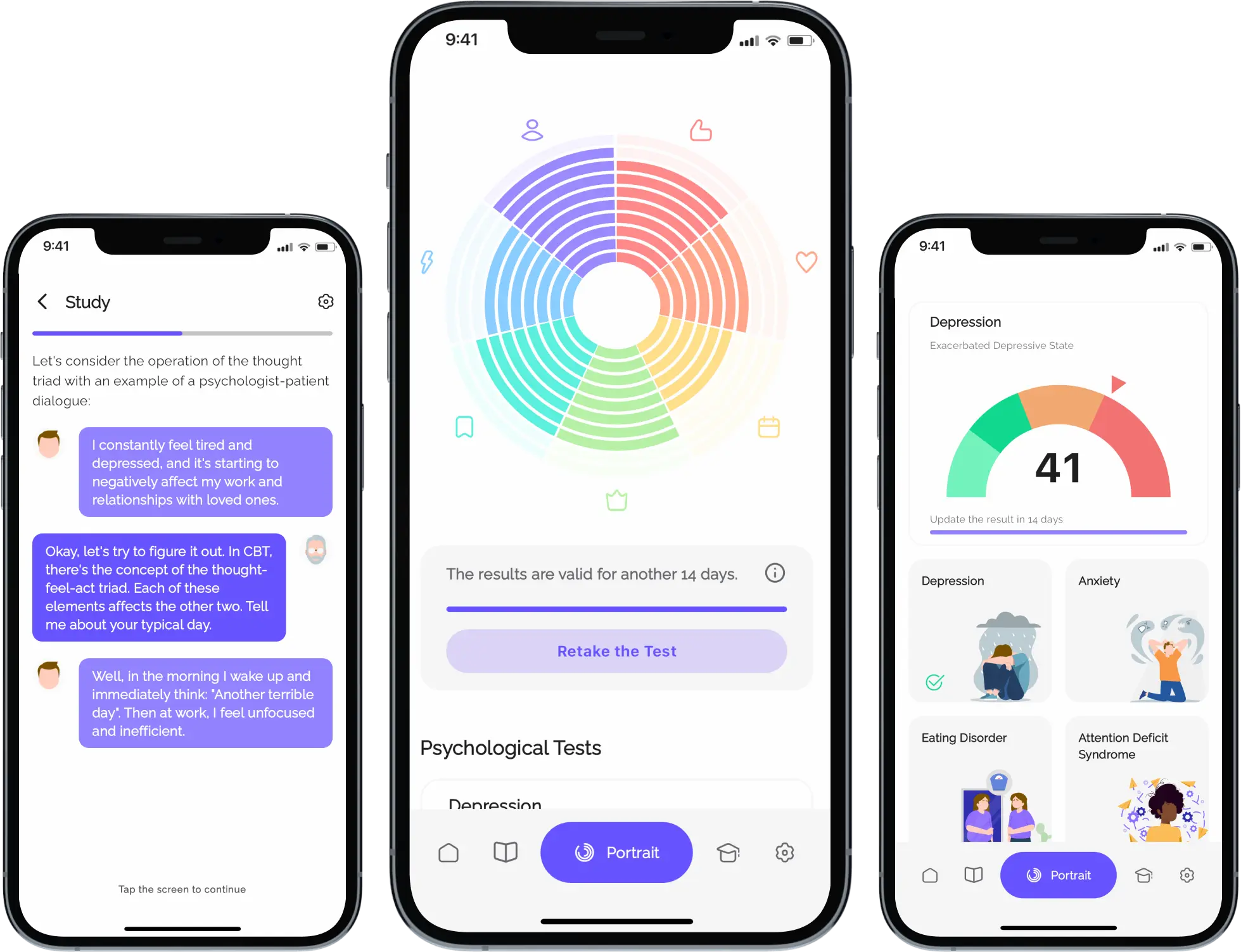
Relationships and love can bring a lot of joy and happiness into life, but they are not the only way.
Happiness is a complex and multifaceted process, and everyone has the right to choose their own methods and ways to achieve it.
Therefore, if your life does not currently include romantic relationships, it does not make it incomplete.
To change your beliefs, you need to make significant efforts; it is a long and laborious process.
But we are confident that by using the following recommendations and techniques, you can overcome love addiction and learn to be happy both in relationships and without them.
Have you noticed that when you feel lonely, you constantly see couples in love on the street?
More content in our app
You're only seeing a portion of the content. In the app, you'll find numerous interactive articles. Additionally, there are psychological tests to track your mood dynamics, a daily planner, an automatic thought journal, and much more!

And it seems like the whole world is against you: here a pair of pigeons, there a cat and a kitten, and you are still alone. This is how cognitive distortion works — the negative filter.
This is a thinking and perception error, where you only notice what bothers you and ignore the rest.
Change the filter — look at the world more broadly. Learn to see not only happy couples but also happy singles. Or people who have a partner but have not become happier because of it — social status does not always justify itself.
Happiness is like a butterfly: the more you chase it, the more it eludes you. But if you turn your attention to other things, it comes and sits softly on your shoulder.
Henry David Thoreau
Happiness can be found every day in small joys, personal development, friendships, and many other aspects of life.
But most likely, you don't think so and are convinced that you cannot be happy without another person.
To test this belief for reality, use the “List of Expected Pleasure.” It has several columns where you need to predict and indicate the actual degree of pleasure you get from various activities (work and leisure) alone or in the company of other people.
In the fourth column, estimate how much pleasure each activity will bring you, rating it on a scale from 0 to 100% — the higher the number, the greater the expected pleasure.
Afterward, in the fifth column, record the actual degree of pleasure, using the same rating system — from 0 to 100%.
After conducting a series of such experiments, you can analyze the data you have collected and learn a lot about yourself.
Firstly, by comparing the expected pleasure (column 4) with the actual pleasure (column 5), you will see how accurate your predictions are.
No one can make you feel inferior without your consent.
Eleanor Roosevelt
You may realize that you usually underestimate the degree of pleasure you expect to receive, especially when doing something alone.
You might also be surprised to learn that activities with someone else do not always meet your expectations.
In fact, you might even find that in many cases, spending time alone was more enjoyable than being in company.
And you may also see that the highest ratings you gave to solitary activities are equal to or even higher than the ratings for activities in company.
Love, relationships, and marriage are not necessary conditions for happiness and self-esteem; sometimes they are simply not enough.
Evidence of this is millions of men and women who are married and yet unhappy.
If love were a cure for loneliness, problems, bad moods, and depression, then all psychologists would be out of work.
But unfortunately, this is not the case; having a partner does not guarantee a happy life. And this must be realized and accepted.
To start working on your belief, formulate and write it down. It can sound different:
Then, describe how exactly your belief is hindering you. For example:
After this, write down counterarguments. This can be a challenging process and may take more than one day; add to the list as new thoughts come.
For example, for the belief “Being alone is terrible and humiliating,” you can write down the following counterarguments:
And the most important part of this process is to replace your old belief with a new one. It should sound realistic and rational so that you can believe in it.
For example: “Loneliness can be pleasant and beneficial; in it, you can rest and get to know yourself better. And love manifests itself in different relationships.
Even without a partner, you can feel close to people, share experiences, and show warmth. It is important to rely on the kind of relationships I personally want, and if I do not have them — set a goal and try to create them.
But the absence of a partner does not make me incomplete. Just as the desire to have a partner does not make me weak and dependent.”
Read these notes every day for 2-3 weeks; you can supplement or change them. In this way, you will be able to overcome negative thinking patterns and lay the foundation for your changes.
Love is a wonderful experience, but like any other, it can be both positive and negative and should not define who we are and why we are here.
Desire and need are not the same. Oxygen is a need, and love is a desire.
Love is not a need for an adult!
The desire to build a love relationship is normal. There is nothing wrong with it. Good relationships with a loved one are a wonderful pleasure.
But to survive or experience the greatest happiness, you do not need the approval, love, or attention of another person.








